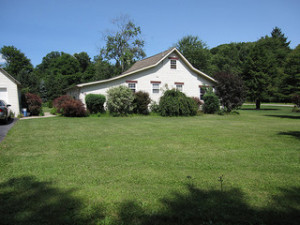Beware: Once You Sell Your Home – You’ve Sold
Seller’s remorse can be a costly thing and selling a family home is never easy. However, once the decision to sell is made, you have to let it go.
Putting the family home up for sale can be an emotional experience, but once you’ve made the decision, stick with it or there could be costly legal trouble.

photo credit: Nuevo Anden via photopin cc
I recently took my kids to see the house in Toronto where I grew up. It had been our family home for 40 years, until my parents passed away.
It sat empty for almost a year after they were gone, as it was very hard for me and my siblings to sell it. We sold it to buyers who moved in and did minor renovations. I am not sure whether we would have agreed to sell it to someone who wanted to tear it down.
Selling a family home is never easy, because there are so many emotions attached to it. However, once the decision to sell is made, you have to let it go.
A new owner can do what they want with the property regardless of your memories as this case shows:
In November, 2011 Marsha Kriss signed an agreement to sell her parents’ home on Ardmore Ave. in Toronto’s Forest Hill neighbourhood for $1.7 million in a deal that was supposed to close two months later. Her parents had lived in the home for over 50 years and the home had special memories for her. It was important to her that the home not be demolished.
The buyers, Barbara and Eric Kirshenblatt, paid a $100,000 deposit and intended to make substantial renovations to the home. They commissioned Eric’s brother Stephen Kirshenblatt, an architect, to make the plans. When Kriss found out about the plans, she wanted out of the deal. She knew Stephen Kirshenblatt and sent him an email. It said in part:
“As I have now heard . . . that my parents’ home is slated for demolition, I want it verified from you whether you did in fact change your mind, or was it your intention all along. That would change the whole deal. I did not sign on for demolition. Why, that might shred my very soul after 56 years. I could not handle the house being knocked down. That is a DEAL BREAKER. … To you it is just another house, and I have given you an alternative equivalent two doors away. To me it is my parents’ home of 56 years.”
According to material filed in court, the parties negotiated an end to the agreement and agreed the deposit would be returned. But Kriss refused to sign the release or return the deposit. She considered the agreement over and then resold the property to another buyer in May 2012, for $190,000 more.
The Kirshenblatts brought a motion to the court for the return of their deposit.
In a decision dated November 5, 2012, Judge Robert Goldstein determined that Marsha Kris had breached the agreement and that Barbara Kirshenblatt and was entitled to the return of her deposit. As the judge stated:
“The promises to sign a release and then fail to sign it, the changing conditions are evidence that Ms. Kriss was either playing a game of some kind or was genuinely distraught over the fate of her parents’ home. Either way, it would be unjust to allow Ms. Kriss to keep the deposit, especially where she was able to make $190,000 more than she would have had she sold the house to Ms. Kirshenblatt.”
Toronto lawyer Philip Sutherland who represented the Kirshenblatts on the motion says the case is not over, as the buyers may decide to sue for the $190,000 profit Kris made from the second buyer.
Mark Weisleder is a Toronto real estate lawyer. Contact him at [email protected]


You must be logged in to post a comment.